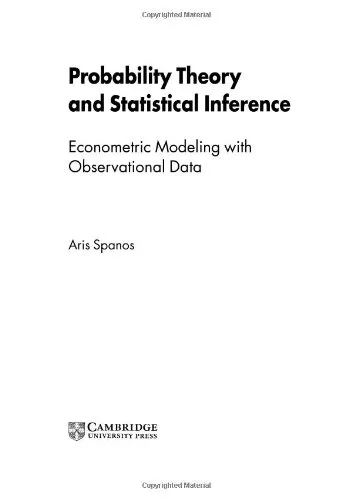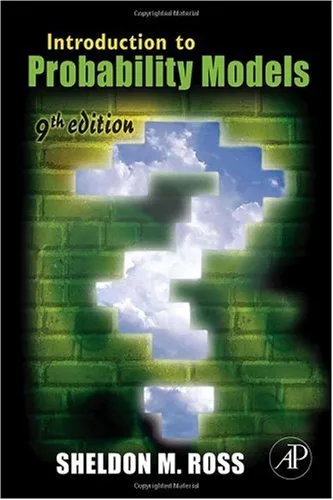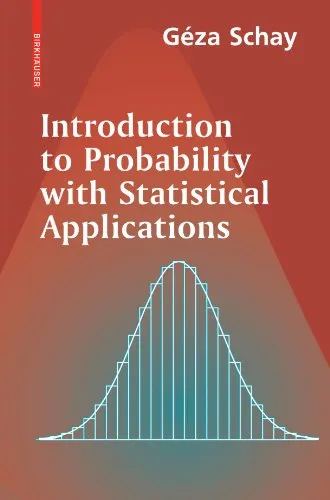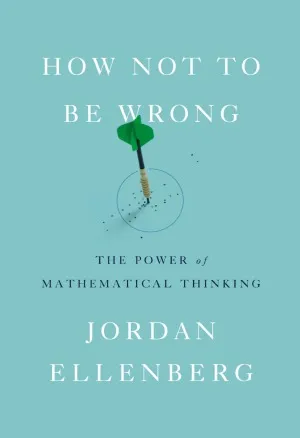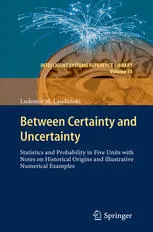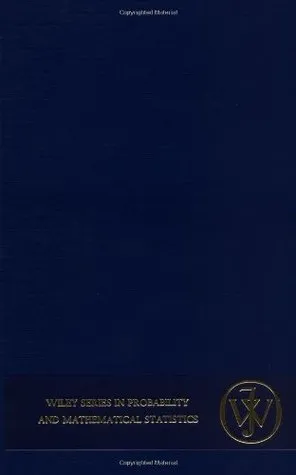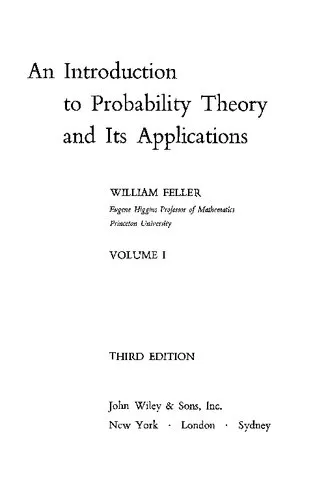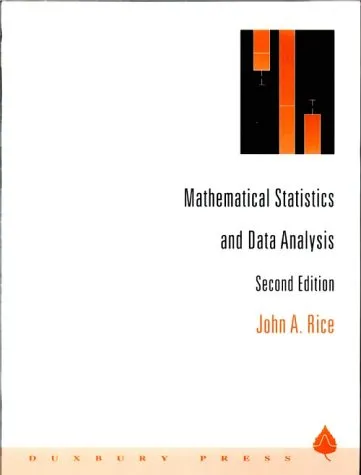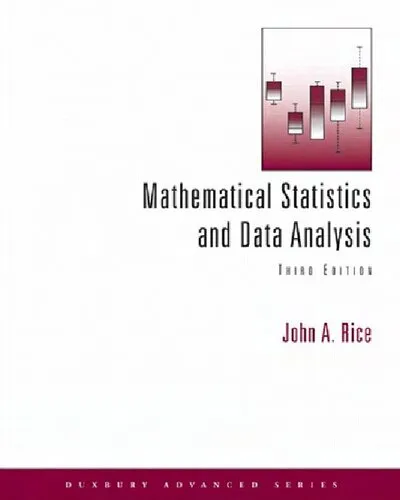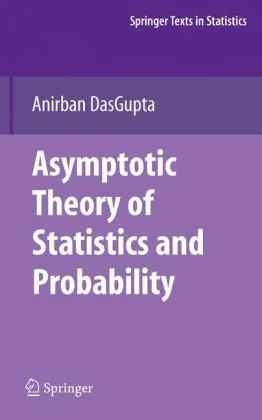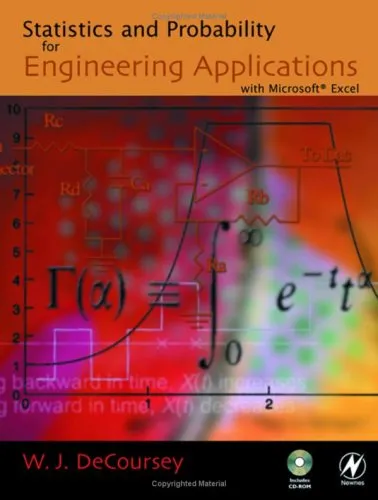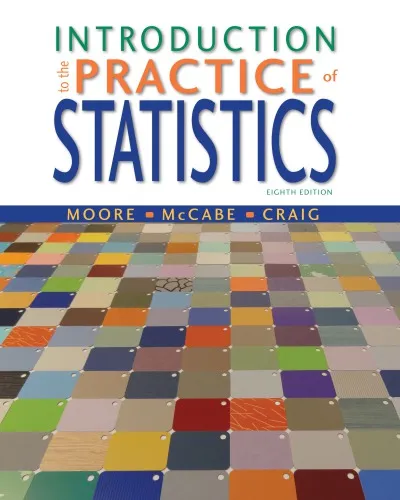Probability theory and statistical inference: econometric modeling with observational data
4.0
بر اساس نظر کاربران

شما میتونید سوالاتتون در باره کتاب رو از هوش مصنوعیش بعد از ورود بپرسید
هر دانلود یا پرسش از هوش مصنوعی 2 امتیاز لازم دارد، برای بدست آوردن امتیاز رایگان، به صفحه ی راهنمای امتیازات سر بزنید و یک سری کار ارزشمند انجام بدینکتاب های مرتبط:
معرفی جامع کتاب "Probability Theory and Statistical Inference: Econometric Modeling with Observational Data"
کتاب "Probability Theory and Statistical Inference: Econometric Modeling with Observational Data" نوشتهی آریس اسپانوس یک اثر برجسته و عمیق در حوزهی نظریه احتمال، آمار و مدلسازی اقتصادسنجی است. این کتاب بهطور خاص به تحلیل دادههای مشاهدهای پرداخته و مفاهیم آماری را با چارچوبهای عملیاتی اقتصادسنجی پیوند میدهد.
خلاصه تفصیلی کتاب
این کتاب با تأکید بر اهمیت نظریه احتمال (Probability Theory) در ساخت، آزمون، و ارزیابی مدلهای اقتصادسنجی طراحی شده است. اسپانوس تلاش میکند تا خوانندگان را با اصول اساسی و بینشهای عمیق در زمینهی استنباط آماری (Statistical Inference) آشنا کند. کتاب با رویکردی نظاممند به شناسایی وابستگیها و مشکلاتی میپردازد که اغلب در هنگام کار با دادههای مشاهدهای (Observational Data) ظهور میکنند.
ساختار کتاب به صورت منطقی و آموزشی طراحی شده است. فصلهای آغازین کتاب به شرح مبانی نظریه احتمال، توزیعهای احتمال و ویژگیهای آماری پایه مانند Expectation، Variance و Correlation اختصاص داده شدهاند. سپس، با پیشروی در فصول دیگر، اسپانوس به جزئیات مدلسازی موفق در اقتصادسنجی میپردازد؛ از آمادهسازی دادهها گرفته تا آزمونهای آماری برای تایید یا رد مدلهای پیشنهادی.
یکی از جنبههای چشمگیر این اثر پرداختن به مشکلات رایج مانند Heteroskedasticity، Multicollinearity و Autocorrelation است. نویسنده در هر فصل، راهحلهای عملی برای فایق آمدن بر این چالشها ارائه میدهد. همچنین، پیوند دادن این مفاهیم با کاربرد آنها در تحلیل واقعی داده باعث شده است که کتاب در سطح دانشگاهی بسیار محبوب باشد.
نکات اصلی و دستاوردها
این کتاب نکات ارزشمندی را برای دانشجویان، پژوهشگران و متخصصین اقتصادسنجی و آمار به همراه دارد:
- درک کامل از اصول نظریه احتمال و کاربردهای آن در آمار و اقتصادسنجی.
- تحلیل عمیق مشکلات رایج در تحلیل دادههای مشاهدهای و پیشنهادات برای مقابله با آنها.
- رویکرد آموزشی با مثالهای کاربردی و ساده برای فهم بهتر مفاهیم پیچیده.
- توضیح مراحل مختلف مدلسازی آماری و اقتصادسنجی از شناسایی مدل تا آزمون پسآزمایشی.
- تمرکز ویژه بر دادههای غیرتجربی (Observational Data) و چالشهای مربوط به آن.
جملات الهامبخش از کتاب
کتاب "Probability Theory and Statistical Inference" حاوی بسیاری از جملات بینشبخش است که نشاندهندهی تسلط آریس اسپانوس بر موضوع است. برخی از جملات مهم عبارتاند از:
"Statistical modelling is as much an art as it is a science."
"Econometrics begins where observational data replaces controlled experimentation."
"In probability theory, the emphasis is not only on mathematics but on meaningful interpretation."
چرا این کتاب اهمیت دارد؟
این کتاب به دلیل رویکرد چندجانبه و کامل خود، اهمیت ویژهای در جامعهی اقتصادی و آماری دارد. اسپانوس توانسته است بین نظریههای مجرد ریاضی و کاربردهای عملی پلی بزند و به همین دلیل اثر او بهعنوان منبعی اساسی برای دانشجویان و حرفهایها شناخته میشود.
کتاب نهتنها به توضیح ابزارها و تکنیکهای مدلسازی میپردازد، بلکه طرز فکر و بینش لازم برای مواجهه با پیچیدگیهای واقعی دادههای مشاهدهای را نیز آموزش میدهد. دادههای مشاهدهای معمولاً شامل عدم قطعیتهای بسیار و چالشهای متعددی است، اما اسپانوس دیدگاهی واقعبینانه و روشمند برای مدیریت این ناهمواریها ارائه کرده است. مفاهیمی که در این کتاب معرفی و تبیین شدهاند، در بسیاری از رشتهها مانند اقتصاد، علوم اجتماعی و حتی مهندسی کاربرد دارند.
در عصر حاضر که تحلیل دادهها بخش برجستهای از تصمیمگیریها را تشکیل میدهد، داشتن درکی عمیق از مفاهیم نظریه احتمال و آماری ضروری است. این کتاب ابزاری قدرتمند برای بهبود این دانش و مهارتها است و به همین دلیل پیشنهاد میشود به همه افرادی که به نوعی با تحلیل داده سروکار دارند.
Introduction to "Probability Theory and Statistical Inference: Econometric Modeling with Observational Data"
"Probability Theory and Statistical Inference" is a comprehensive and meticulously crafted book by Aris Spanos, designed to provide readers with a robust understanding of probability theory, statistical inference, and their applications in econometrics. This work addresses the challenges of working with observational data in economic research, integrating mathematical rigor with practical insights to bridge the gap between theory and application. The book serves as a vital resource for students, academics, and professionals who seek a deeper understanding of econometric modeling.
Detailed Summary
At its core, "Probability Theory and Statistical Inference" provides a structured approach to understanding how probability theory underpins modern econometric methods. The book starts by laying the groundwork, introducing foundational concepts in probability, such as distributions, random variables, and independence. It progresses logically into statistical inference, offering insights into estimation and hypothesis testing while addressing critical issues such as model misspecification, identification, and reliability.
What sets this book apart is its emphasis on observational data, which are inherently different from experimental data due to the lack of controlled experimental conditions. Spanos articulates the methodological complexities of analyzing real-world data and demonstrates how probability theory can guide the construction of sound econometric models. Readers are guided through practical examples and case studies that highlight how theoretical constructs translate to applied econometric problems.
With its focus on unifying the probabilistic and statistical dimensions of inference, the book equips readers with the tools to critically evaluate econometric models and apply them to their own research. Spanos champions a "probabilistic reduction" approach, facilitating a deeper understanding of the stochastic structures underpinning real-world phenomena.
Key Takeaways
- A solid foundation in probability theory and its relevance to statistical inference.
- An in-depth exploration of econometric modeling with observational data.
- Practical tools to assess and address model misspecification and related challenges.
- A clear methodology for unifying probabilistic and statistical inference within economic contexts.
- Insights into the importance of probabilistic reduction for understanding stochastic processes.
Famous Quotes from the Book
"Econometrics is as much about understanding the limitations of your models as it is about estimating relationships."
"The interplay between probabilistic assumptions and statistical inference is critical for extracting meaning from observational data."
"The process of probabilistic reduction serves as the cornerstone for unveiling the stochastic structure hidden within real-world data."
Why This Book Matters
In an era where data-driven decision-making is paramount, "Probability Theory and Statistical Inference" offers a road map for navigating the complexities of observational data. Many econometric models fail when misapplied or misunderstood, leading to erroneous conclusions. This book empowers readers with the tools and knowledge to avoid such pitfalls, fostering a rigorous and disciplined approach to econometric research.
Aris Spanos's work is particularly important for aspiring and established econometricians who seek to master both theoretical and practical aspects of modeling. By grounding probabilistic and statistical inference in real-world examples, Spanos provides a framework that is not only academically robust but also critically relevant to practitioners. It is a guide that encourages critical thinking, rigorous testing, and a holistic understanding of econometric analysis.
For students embarking on their econometric journey or professionals seeking to refine their methodologies, this book is an indispensable resource. Its importance lies not only in its depth and scope but also in its ability to make complex concepts accessible and actionable. It is truly a cornerstone work in the field of econometrics.
Written by Aris Spanos, "Probability Theory and Statistical Inference" is an essential read for anyone working with econometrics and observational data.
دانلود رایگان مستقیم
شما میتونید سوالاتتون در باره کتاب رو از هوش مصنوعیش بعد از ورود بپرسید
دسترسی به کتابها از طریق پلتفرمهای قانونی و کتابخانههای عمومی نه تنها از حقوق نویسندگان و ناشران حمایت میکند، بلکه به پایداری فرهنگ کتابخوانی نیز کمک میرساند. پیش از دانلود، لحظهای به بررسی این گزینهها فکر کنید.
این کتاب رو در پلتفرم های دیگه ببینید
WorldCat به شما کمک میکنه تا کتاب ها رو در کتابخانه های سراسر دنیا پیدا کنید
امتیازها، نظرات تخصصی و صحبت ها درباره کتاب را در Goodreads ببینید
کتابهای کمیاب یا دست دوم را در AbeBooks پیدا کنید و بخرید
1286
بازدید4.0
امتیاز0
نظر98%
رضایتنظرات:
4.0
بر اساس 0 نظر کاربران
Questions & Answers
Ask questions about this book or help others by answering
No questions yet. Be the first to ask!
